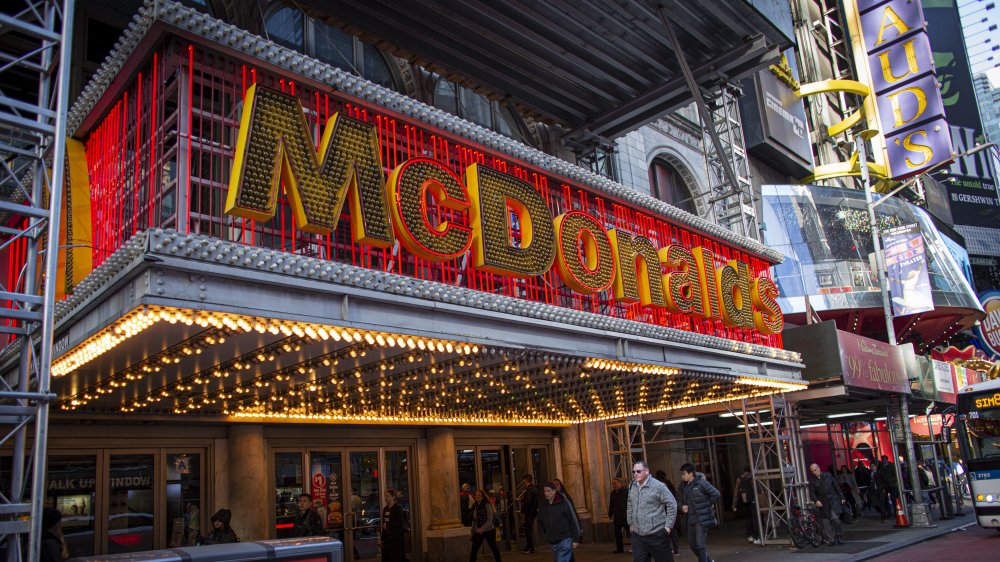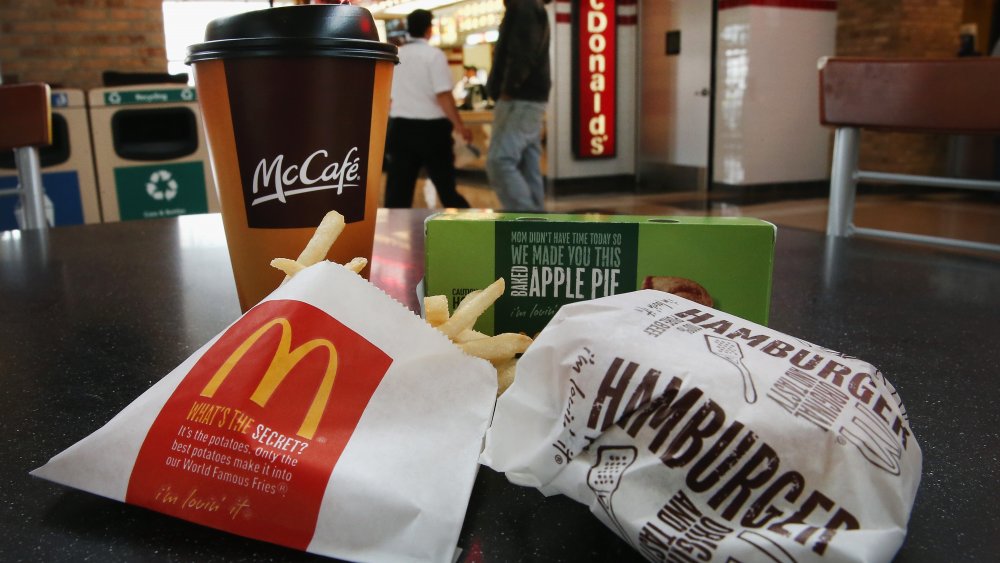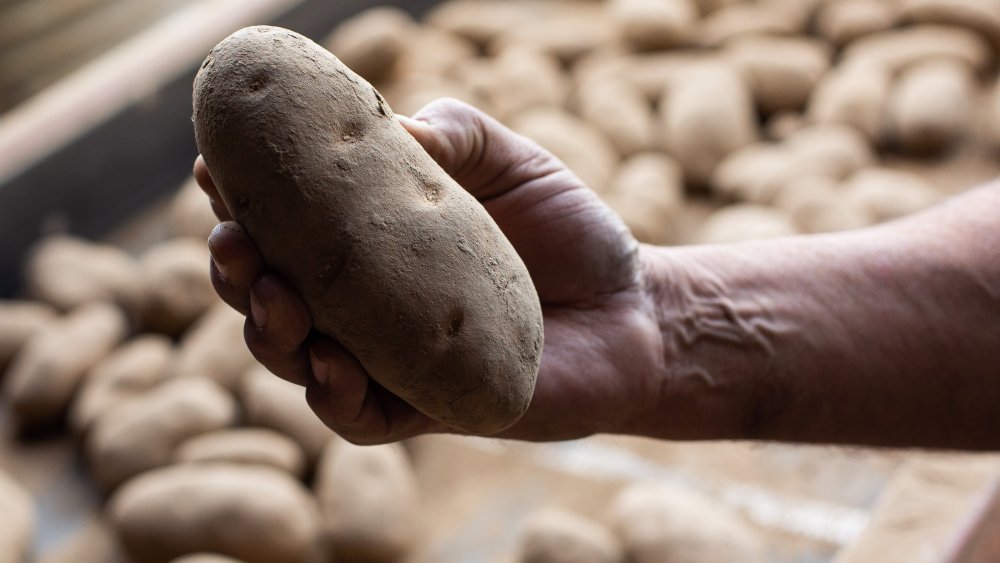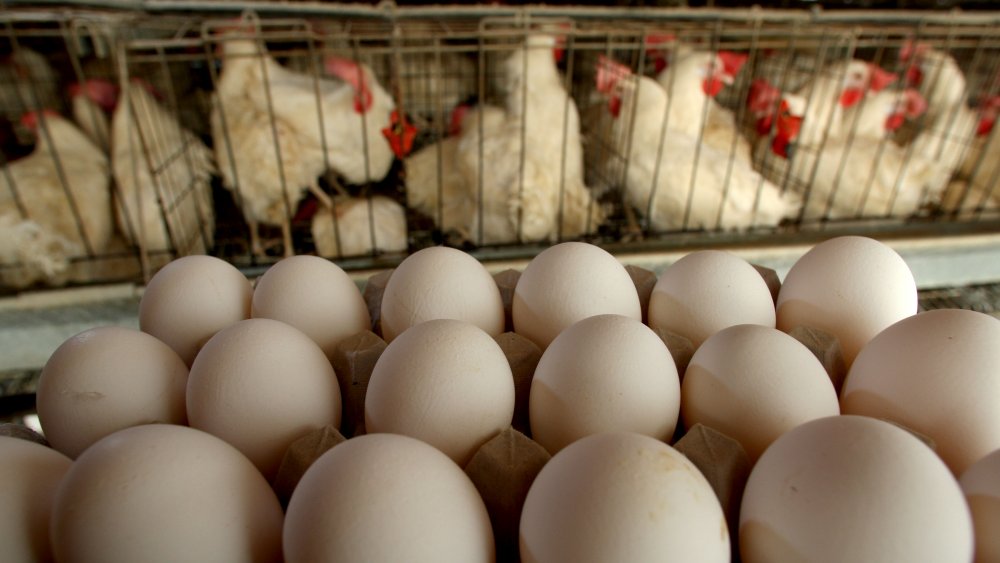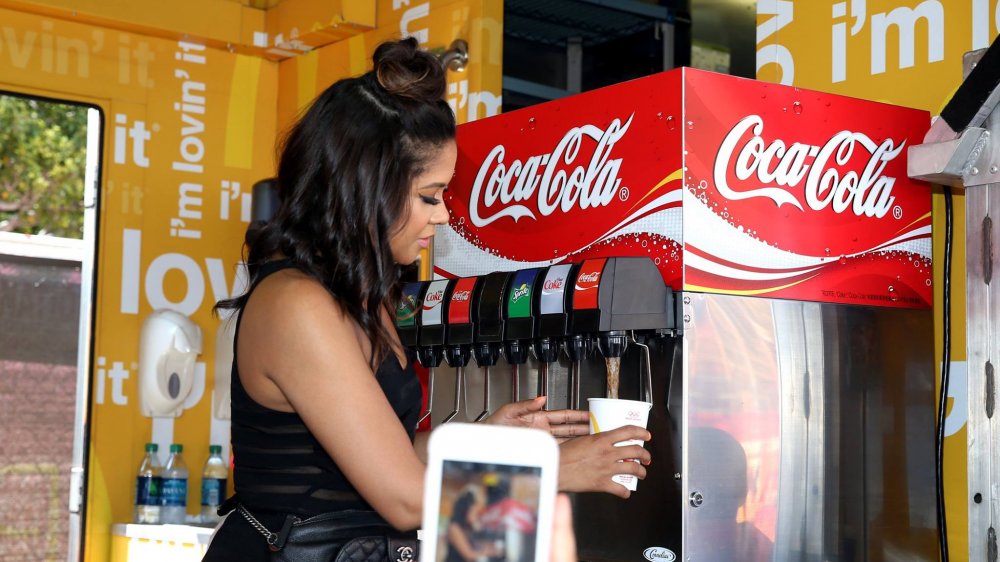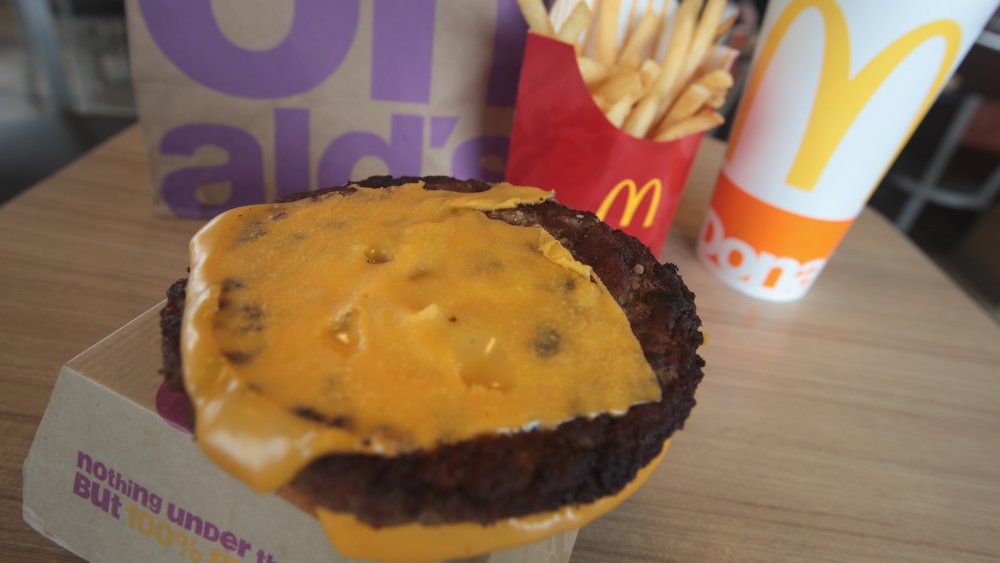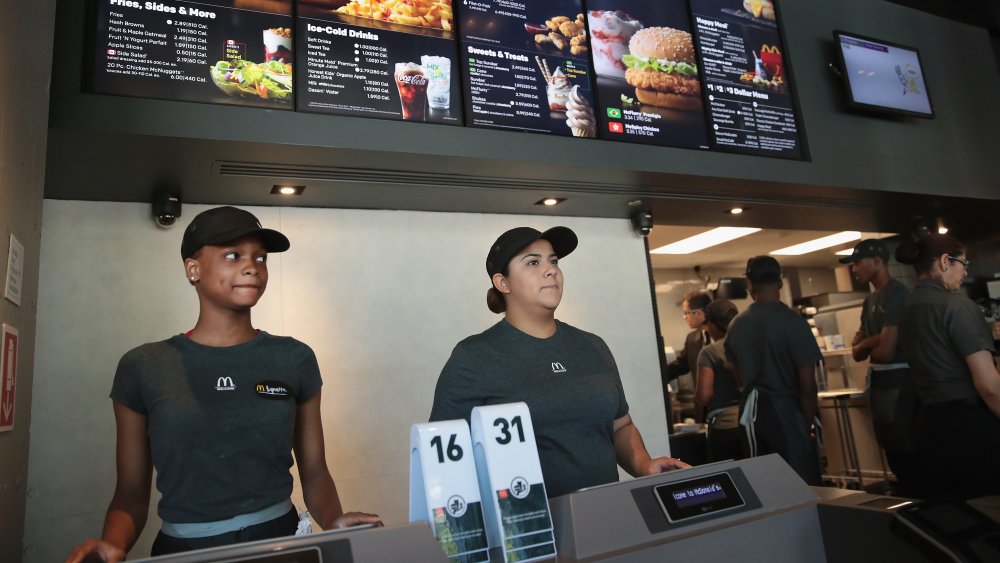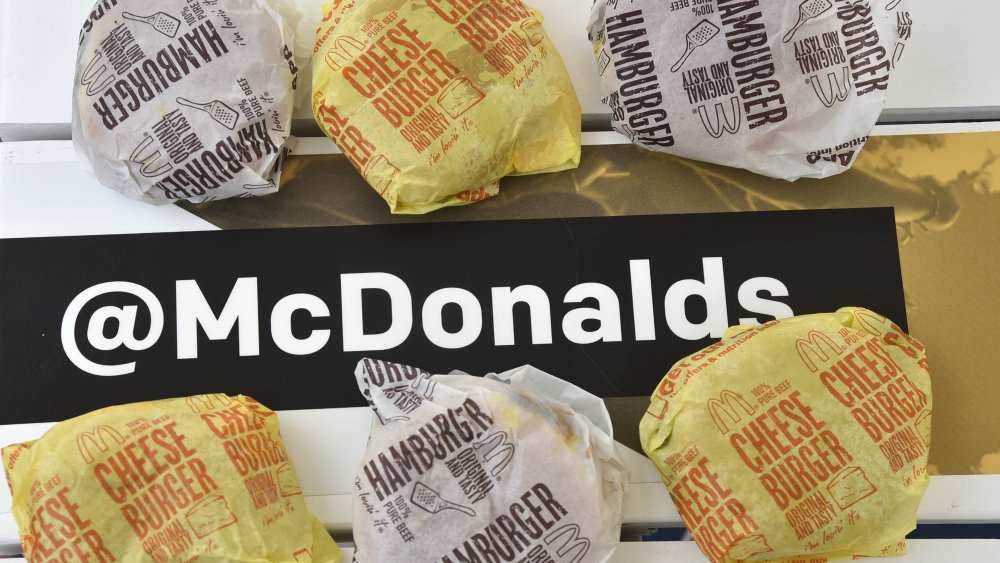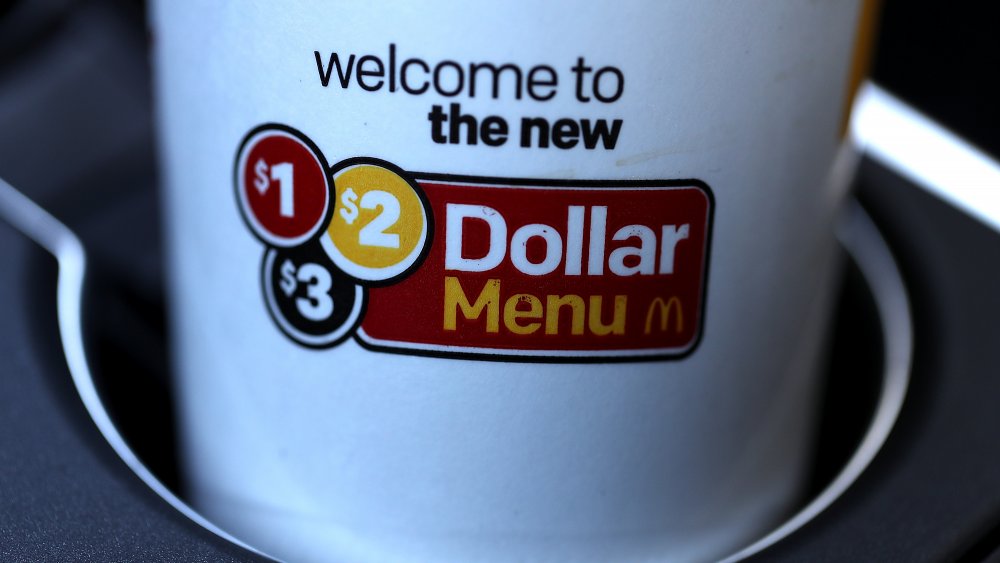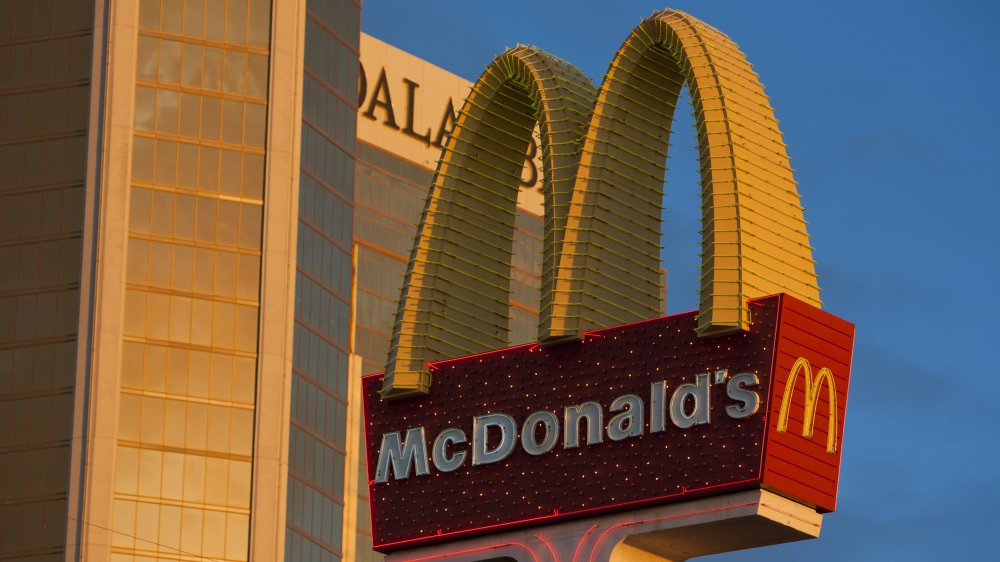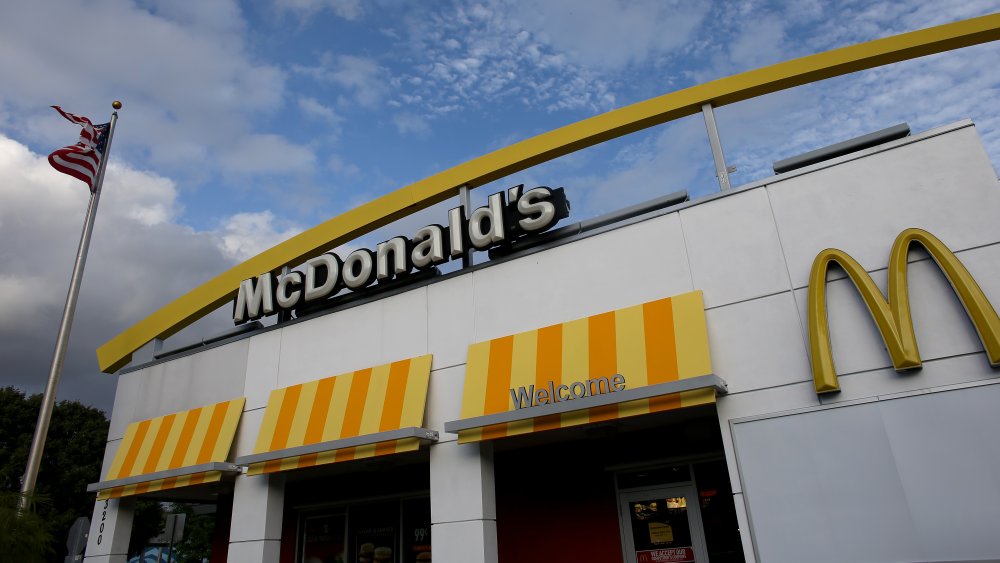The Real Reasons McDonald's Is So Cheap
Maybe we're all just so happy to be able to get a cheeseburger for a dollar that we've never considered just how McDonald's does it. How is it able to sell food for so little?
The answer is that McDonald's has mastered the art of making and serving food at rock-bottom costs. You don't need to charge much for food if it doesn't cost much for you to make it. This is precisely the situation that occurs at McDonald's. But furthermore, the McDonald's corporation has other streams of revenue, so they're not dependent on making money solely from the food they sell. As long as McDonald's, the brand, exists, it can make money. Thus, the price of its cheeseburger is almost irrelevant.
From getting the cheapest Coca-Cola products of any restaurant to bringing in billions of dollars in rent, these are the ways McDonald's can afford to sell such cheap food.
McDonald's sells some of the most profitable food items available
Yes, McDonald's sells its food for a very small price tag. But that doesn't mean it can't still make money from it. It just so happens that the fast food giant is in the business of selling some of the most profitable food items around. Take for example soda and coffee. These beverages cost the restaurant just a few cents per cup, but it charges several dollars for each. According to Business Insider, restaurant soda has a 1,150 percent markup while coffee has a staggering 2,900 percent markup. And don't forget about bottled water, which McDonald's also sells. That item splits the difference with a 2,000 percent price increase.
But it's not just beverages where McDonald's reaps the benefits of a high profit margin on low-priced food. The restaurant sells numerous egg-based breakfast items. The average price of a dozen eggs is $1.32, which comes to 11 cents per egg. Even if you added the cost of other ingredients (cheese, bacon, English muffin, etc.) it's hard to see McDonald's paying more than $1 to make a breakfast sandwich. Yet they charge about $3 to $4 for them.
Children's menu items also fall into this category. Kids eat smaller portions of meals with fewer ingredients, which means these meals cost the restaurant less. This helps increase profit margins. Therefore, McDonald's can once again charge cheap prices for these meals and still make money from them.
McDonald's keeps prices low by buying ingredients in enormous wholesale amounts
As anyone with a Costco membership will tell you, buying in bulk can save you a serious amount of money. Now, instead of buying food for one household, imagine buying for thousands of locations and you'll begin to understand just how little McDonald's has to pay for ingredients compared to everyone else. In fact, McDonald's is the world's largest buyer of beef, pork, potatoes, lettuce, and tomatoes. They're also the second-largest purchaser of chicken behind only KFC. Needless to say, the phrase "buying in bulk" takes on a new meaning with the fast food corporation.
Because McDonald's buys so much food, any supplier would want their business. Therefore, these businesses offer the fast food giant steep discounts on products. They are essentially buying the ingredients they need at wholesale prices. McDonald's can then turn around and pass on (some) of those savings to the customer, resulting in some very inexpensive food.
McDonald's uses cheap ingredients
Not only does McDonald's get steep discounts on their ingredients, they also source ingredients that are cheap to begin with. Take McDonald's eggs for example. Although they have begun to phase them out, McDonald's has historically, and continues to, use caged eggs. According to its site, only 12 million of the 2 billion eggs McDonald's serves in the United States each year are cage-free.
The cost of producing cage-free eggs is significantly higher than caged eggs. Farms have to upgrade their facilities and pay more in labor, not to mention the fact that hens produce fewer eggs when roaming free. That cost then gets passed onto the buyer. The average cost of one dozen caged eggs is 91 cents. The price of cage-free eggs is nearly three times higher at $2.65.
Another way McDonald's sources cheap ingredients is by looking overseas. The company buys many of its ingredients from foreign countries. When purchasing something from a poorer country, such as coffee from Guatemala, it will cost McDonald's less than had they done so from a domestic producer.
Partners offer discounts to McDonald's
McDonald's has more than 36,000 locations around the world, making it the second-largest fast food chain on Earth (based on store count). It's also one of the globe's most recognizable brands. From a financial and marketing standpoint, any company would love to be in business with McDonald's, and those that do pay a premium for that opportunity.
The prime example of this is McDonald's use of Coca-Cola products. The two companies forged a relationship decades ago. Since then, Coca-Cola has been the restaurant's soft drink provider. For this right, the beverage company offers McDonald's steep discounts on their products. And according to The New York Times, Coke sales teams are not allowed to sell their soda syrup to other restaurants for less than what McDonald's pays.
There are other benefits to this relationship. Over the years, many people have suggested that McDonald's serves the best tasting Coke. Turns out, there's a good reason for that. While Coca-Cola delivers its syrup to other restaurants in plastic bags, McDonald's receives it in stainless steel tanks, creating a fresher and tastier soda.
Using preservatives prevents McDonald's from losing money on food waste
Fast food restaurants commonly use artificial preservatives in their ingredients. These chemicals work by preventing mold yeast and other harmful organisms from growing in food, thus prolonging the ingredient's shelf life. However, there is concern that some of these preservatives may not be safe to eat in the long term. Therefore, many restaurants, including McDonald's, have begun the process of cutting them out of their food. In 2016, McDonald's removed preservatives from their McNuggets. Two years later, they did the same to their seven classic hamburgers.
But they are far from out of the woods. Roughly one-third of the chain's menu still contains artificial preservatives including popular items such as the Egg McMuffin; Bacon, Egg, and Cheese Biscuit; Bacon, Egg, and Cheese McGriddles, and the Filet-O-Fish.
These preservatives ensure that McDonald's ingredients don't spoil. This, in turn, saves them a significant amount on food cost. Restaurants in the United States throw out more than $160 billion worth of food each year. By adding these artificial preservatives to their ingredients, McDonald's doesn't need to factor in waste when pricing its food, helping to keep the prices on their menus very low.
Cheap labor keeps costs down for McDonald's
Making food requires two components: ingredients and labor. It's not just the miniscule food costs that allow McDonald's to serve cheap food, it's also how very little they spend on the people who make it. On average, fast food workers make $8.92 per hour. Working 40 hours per week, for 52 weeks per year, an average fast food worker would make $18,533.60 per year. The median annual wage in the United States is $38,640.
Instead of having skilled chefs or cooks who would require higher salaries, the company depends on unskilled workers whom they train.
But paying minimum wage — or slightly above — seems to be too big a price for McDonald's. Over the past several years, McDonald's has begun to integrate self-service ordering kiosks in their restaurants. These digital ordering platforms obviously do not require a salary, thus they'll eliminate some fast food jobs, further reducing expenses for McDonald's.
Selling an immense amount of cheap food equals big profits for McDonald's
Even with a high-profit margin, McDonald's likely would not be able to make ends meet making a dollar or two on an item if they were only selling a limited amount. The complementary component that allows McDonald's to sell cheap is scale.
Simply put, McDonald's makes its money by selling a lot of cheap food. A business can make more money by lowering the price on an item if the increase in demand is greater than the decrease in price. "If the firm lowers price five percent and quantity sold rises by 10 percent, then demand is elastic and total revenue will rise," says Patricia Smith, a University of Michigan professor specializing in the economics of fast food. "McDonald's will make money selling burgers for a buck if it can make the burger for less than $1 and sell lots and lots of burgers."
This is where it helps that McDonald's serves so many people. It's also why McDonald's will do everything to get you your food as quickly as possible. They even teach their employees and shape their menu around this principle. "We are trained to go as fast down the line as we can, and if we have to stop to make something that has 10 ingredients, it tends to slow things down," a McDonald's employee told Mental Floss. "Corporate has realized this and has taken many of these items off in recent years."
McDonald's uses its cheapest food as bait to upsell
While it's true that McDonald's can make money off of cheap food, it does have higher hopes. Truth is, the restaurant can offer cheap food because it's used to lure you in. Then it gets you to spend more.
Asking, "would you like fries with that?" is probably the most well-known upselling tactic — and it works. According to the Journal of Marketing Research, customers will eat 85 percent more when servers offer them more food.
Training employees to try to get customers to tack on items to their order is just one technique McDonald's employs. Truth is, there is no limit to what the restaurant will do when it comes to upselling. In 2019, it purchased a technology company that will essentially help give their menu boards artificial intelligence. The software changes what food is displayed on the drive-thru based on factors such as time of day, weather, and trending items. In the morning, for example, hash browns and coffee will be prominently displayed; if it's hot outside, a vanilla shake will be front and center.
McDonald's is banking that they can lure you in with their value meal and then once you lay eyes on another delectable item, decide you can't live without it.
McDonald's is a multi-billion real estate company
An argument could be made that selling cheeseburgers is simply the Golden Arches' side hustle; that McDonald's is actually a real estate company masquerading as a fast food empire.
Most fast food franchises sell their name, branding, and proprietary formulas in exchange for a share of the franchisees' profits. McDonald's does the same but with one additional, corporate-friendly policy: franchisees must pay McDonald's rent. That's because the company owns the physical property of most of its locations.
The business model is simple: the company buys up cheap locations then leases them to franchisees. The caveat is that McDonald's finances these transactions using fixed rates but charges leases using variable rates, meaning lease payments continue to rise over the years even though the cost to McDonald's doesn't change. According to Bloomberg, the average McDonald's franchise pays nearly $400,000 per year in rent and associated fees. The chain has some 36,000 locations, 90 percent of which are owned by franchisees.
The truth is that McDonald's can sell food for as little money as it wants –- and as long as the doors are open, it's making money. And they're not shy admitting it. Former CFO Harry J. Sonneborn explained the chain's philosophy best, saying, "[McDonald's is] not technically in the food business. We are in the real estate business. The only reason we sell 15-cent hamburgers is because they are the greatest producer of revenue, from which our tenants can pay us our rent."
McDonald's also makes a ton of money from other franchisee fees
It's not just rent that McDonald's takes in from its franchises. The company reaps massive dollars from their outsourced locations in other fees.
If you want to open a McDonald's restaurant, it'll cost you a cool $45,000 upfront. After you set up shop, you'll still have to pay the mother ship four percent of your gross sales each month. As long as the restaurant is making any money, McDonald's corporation is making money. In 2018, McDonald's brought in fees, royalties, and rent from franchised restaurants to the tune of $11 billion. The company doesn't care if they lose a dollar on a cheeseburger — they're making billions just by selling them.
You might be asking yourself, why would anyone want to open a McDonald's if so much money just gets sent right back to the corporate office? It's because there's still plenty of cash to be made. McDonald's has an unrivaled brand identity. It is so well-known and serves so many customers that owners can still make a nice profit. According to Bloomberg, the average McDonald's location made roughly $2.7 million in annual sales. After all the costs, expenses, fees, and rent, each franchise had a total operating income just north of $150,000. Not a bad payday.
